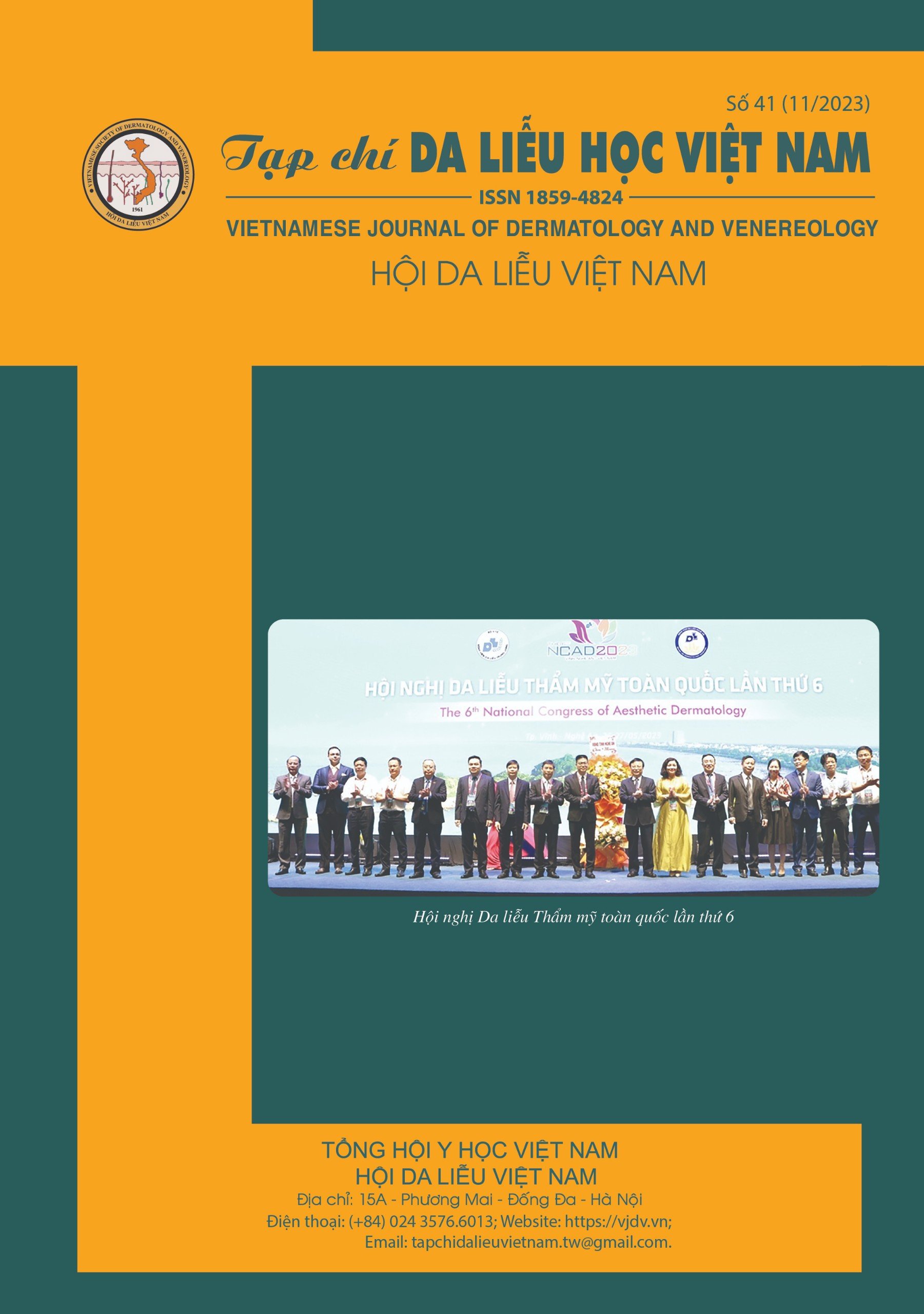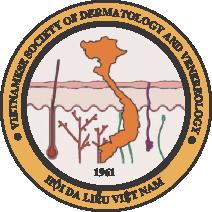ALTERATION IN THYROID PROFILE OF ALOPECIA AREATA PATIENTS
DOI:
https://doi.org/10.56320/tcdlhvn.41.113Keywords:
alopecia areata, thyroid, thyroiditis, anti-thyroid antibodiesAbstract
Objectives: Alopecia areata is one of the most common hair loss disorders. Recent studies have highlighted the role of immune-related pathogenesis in alopecia areata and its association with other immune diseases, such as thyroid problems. This study was conducted to assess thyroid disorders in patients with alopecia areata. The objective of this study was to evaluate the frequency of specific thyroid function laboratory tests in patients with alopecia areata.
Materials and Methods: We enrolled 150 patients with various types of alopecia areata who were examined at the National Hospital of Dermatology and Venereology from September 2022 to August 2023. Thyroid function tests, including free T3, free T4, and TSH, as well as thyroid autoantibody (anti-TPO) levels, and thyroid ultrasound were performed for all patients.
Results: Among the 150 patients diagnosed with various forms of alopecia areata, 16 (14.8%) had elevated TPO, 14 (20.7%) had elevated TSH, 7 (2.7%) had elevated FT4, and 10 (6.7%) had elevated FT3 levels. Thyroid ultrasound results indicated that 97 patients (64.7%) had a normal thyroid ultrasound, while 53 patients (35.3%) had abnormal findings, including 31 patients (20.7%) with follicular adenoma of the thyroid and cystic colloid nodules (2.7%), hypoechoic nodules (4.7%), hyperechoic nodules (2.7%), mixed nodules (2.7%), and 5 patients with TIRAD 3 ultrasound results.
Conclusion: The frequency of thyroid dysfunction and the presence of thyroid autoantibodies in patients with alopecia areata in our study were lower than in previous studies. However, based on the evidence from this study, we still recommend evaluating thyroid function in patients with alopecia areata.





